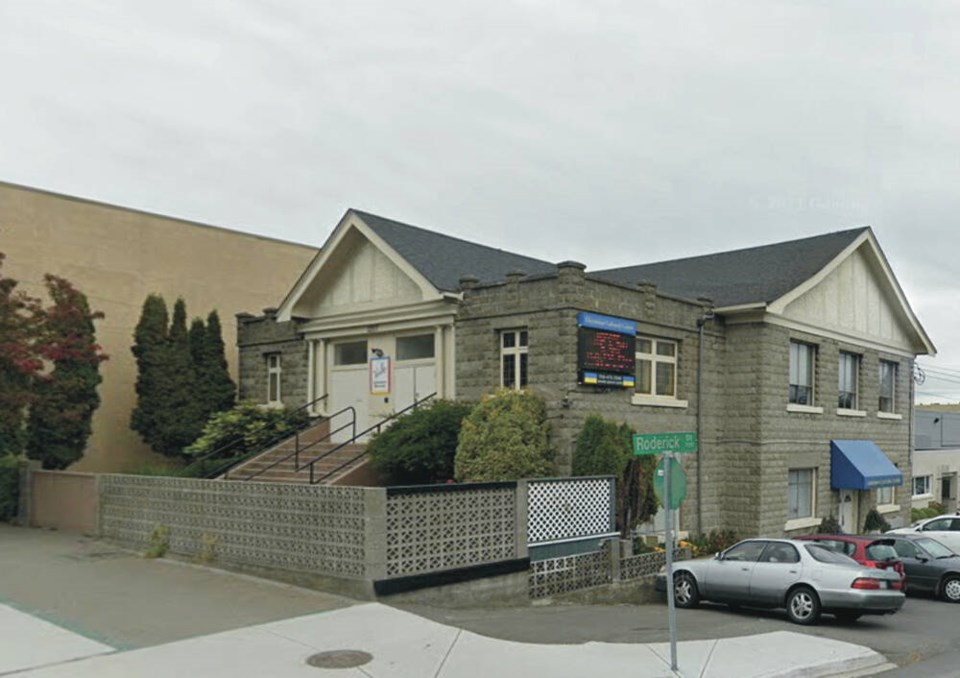Yet another couple of off-the-radar newcomers, a mother and her young daughter, showed up at Victoria’s Ukrainian Cultural Centre this week.
The mom, as lost as you would be if suddenly parachuted into Kyiv, didn’t know where to turn. Had a place to stay but didn’t know where to get the COVID-19 tests they were required to take. Didn’t know how to get there. Didn’t know she needed to apply for Medical Services Plan coverage. The centre came up with advice and $85 for a bus pass.
No, the challenges aren’t easing at the Douglas Street building, where members of the local Ukrainian community have found themselves pressed into service as de facto refugee workers.
“We were just a cultural centre,” says treasurer Dwayne Kalynchuk. “Now we have so many more responsibilities. It’s a bit overwhelming.”
The centre is the focal point for local Ukrainian groups working together under the umbrella of Help Ukraine Vancouver Island. So far, they have taken under their wing about 100 people fleeing the war in Ukraine. Similar efforts are being made by a Comox-based group and at Grouse Nest in East Sooke.
Don’t expect the influx to end soon. “We’ve got almost 700 people on our list who still want to come,” said Devon Goldie, the president of the cultural centre. That far outstrips the number of landing spots: of the 550 locals who volunteered to host new arrivals, only 250 were able to commit to feeding and housing them for 90 days.
“There are a lot of people who want to help, but not as many who are able to do what we are asking,” Goldie said.
“We’re really struggling to house large families and single men,” she said. Ukrainian men of fighting age aren’t supposed to leave their homeland unless they’re single dads or have disabilities, so those who arrive here tend to be elderly. At the other end of the spectrum: a 17-year-old who arrived by himself.
The thing is, the Ukrainians are coming without some of the supports refugees usually see. That was the trade-off when Ottawa expedited their arrival. Normally, the feds want refugees to have sponsors waiting for them here, and requires those sponsors to support the newcomers for a full year; now some Ukrainians step off the plane with no one to greet them at all.
That has left people like those at the cultural centre scrambling to help Ukrainians needing food, housing, day care, jobs. Sorting through who needs what isn’t easy. Some arrivals have relatives here, a built-in network. One family even proved to be well-off and unaffected by the war; already living outside Ukraine, they just seized the opportunity to come to Canada through the newly opened door.
Many, though, arrive as though spat out of a hurricane. At the Salvation Army’s Next Steps Resource Centre, where newcomers have been able to pick up clothing and food, co-ordinator Michelle O’Connor met a Ukrainian woman who landed in Canada with nothing but her purse and the toothbrush and toothpaste she had been handed at the Polish border. Another woman who arrived with her four-year-old is due to give birth soon; they’re bunking with a friend of a friend.
Everywhere they turn, hurdles exist. Some have no money, but need to pay for a two-week quarantine in a hotel. Some landlords want a two-month damage deposit from people with no credit history here. A $400 mandatory medical exam isn’t covered by MSP. Ottawa has promised the arrivals up to $500 a week for six weeks, but that money has yet to appear.
No local non-profit groups, it should be noted, had budgeted to help these people when the year began.
Here’s a glimmer of hope, then: This week, thanks to our readers, the Times Colonist Christmas Fund was able to jointly grant the cultural centre and St. Nicholas Ukrainian Catholic Church $100,000 to help those who land here impoverished by the war, but facing unexpected expenses here.
Another $25,000 went to the Vancouver Island Counselling Centre for Immigrants and Refugees to provide mental- health supports.
In fact, the efforts to help the Ukrainians were just part of a much larger $401,000 disbursement to help Vancouver Island’s less fortunate this spring. This week, O’Connor’s group received $75,000 for a program that, during the summer, provides healthy food to children who normally rely on school meals. Other recent grant recipients included food programs at the Oaklands Community Association, Victoria Women’s Transition House, Esquimalt Neighbourhood House, the Rainbow Kitchen and too many Island food banks to name.
That’s on top of the $537,500 distributed at Christmas, when a dozen or so food banks were also on the list.
This isn’t the way the Times Christmas Fund usually works. Usually, all the money solicited from donors — generally in the area of $300,000 — goes to the Salvation Army and Mustard Seed Street Church to distribute to people in need at the holidays. This year, though, readers were so overwhelmingly generous that there was enough money to fund not only those two groups, but others, too.
It’s lucky for those in need, whether born on the Island or thrust here by war, that our peaceful paradise is so generous.



